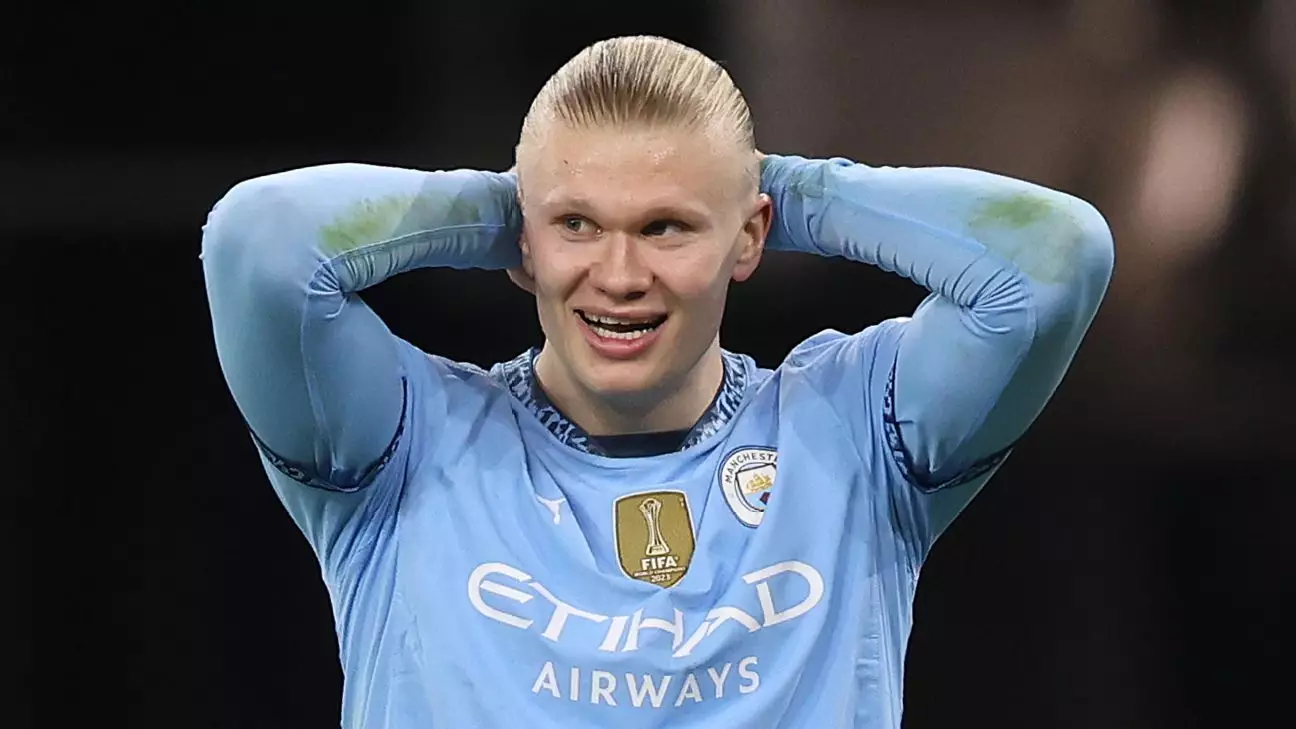In a match that had all the makings of a turning point for Manchester City, what started as a comfortable evening at the Etihad Stadium spiraled into chaos. Leading 3-0 against Feyenoord with just 15 minutes left on the clock, City’s players must have thought they were finally breaking free from a disconcerting stretch of form characterized by five consecutive defeats. However, that assumed victory quickly turned into a haunting 3-3 draw, leaving manager Pep Guardiola in a state of bewilderment and his team grappling with the specter of their shortcomings. This match was not only a pivotal moment in the group stage of the Champions League but also a bitter reminder of the vulnerabilities creeping into a squad that once thrived on resilience and confidence.
The aftermath of the match revealed the fragility that has seeped into City’s psyche, with full attention now shifting to a high-stakes encounter against league leaders Liverpool. Guardiola’s charges have not only endured a six-game winless streak but have also allowed a damaging seven goals in just four days. Such statistics become a weighty anchor as they prepare for what appears to be an insurmountable challenge at Anfield.
Despite their ultimate demise, City effectively showcased flashes of their former brilliance during the match. For the first half, the team displayed an effort that hinted at the dynamic play capable of rekindling their championship pedigree. This illusion was primarily facilitated by Erling Haaland, the Norwegian striker who not only earned a penalty but also put two goals on the board, reflecting his relentless goal-scoring prowess. While Haaland’s statistics were remarkable—51 goal involvements in the Champions League arriving in just 44 matches—the reality is that dependence on individual brilliance can only mask systemic issues for so long.
City’s early dominance, however, was followed by a catastrophic loss of composure. With Guardiola making early substitutions to rest key players ahead of the Liverpool clash, the change inadvertently allowed Feyenoord to find their footing. The switch to less experienced players in the midfield, such as James McAtee and Matheus Nunes, proved disastrous as the Dutch side capitalized on City’s fragility. The minutes that followed were a whirlwind; Feyenoord, suddenly buoyed by the prospect of a comeback, clawed back into the match, leaving City perplexed and defensively exposed.
The pressing question now becomes: How can Guardiola lift the morale of a team that seems lost in the wilderness? During the post-match press conference, he voiced the incredulity of watching a commanding lead slip away. “We give away especially the first one and after we are not stable enough,” he stated, reflecting sorrowfully on the team’s inability to solidify their advantage. If there’s one certainty in football, it is that psychological confidence is essential; without it, even the most skilled players can falter.
Guardiola’s policy of fostering an environment where players are encouraged to self-reflect could have both positive and negative consequences. On one hand, his faith in their understanding of what went wrong represents trust in their professionalism. On the other hand, the sense of urgency he expressed hints at an atmosphere where self-doubt may be festering beneath the surface. As the squad faces a statistically palpable threat of being out of the title race before Christmas, there’s an undeniable pressure weighing on the manager to recalibrate expectations and outcomes swiftly.
With a strategically pivotal match against Liverpool looming, the stakes couldn’t be higher. Guardiola’s mantra of “we have to win” echoes a profound reality that City’s ambitions hang in the balance. In contrast to City’s misfortune, Liverpool have found form and have benefited from a wave of attacking momentum, scoring two or more goals in each of their last six outings. Furthermore, the juxtaposition of City’s alarming inability to maintain defensive structure invites an intriguing narrative into a match that could have significant ramifications for both sides.
The upcoming clash at Anfield is not merely a fixture; it is likely to be a definitive moment that will shape the trajectory of Manchester City’s season. If they wish to emerge from this unsettling phase, the players must harness their capabilities and all or nothing. The pressure to perform is immense, but equally crucial is the potential for resurgence. Guardiola must inspire a united front that harnesses individual strengths to transform into a cohesive unit capable of rising to the occasion against fierce competition.
As this turbulent season unfurls, the intrigue surrounding Manchester City intensifies. Will they reclaim their formidable status, or will they continue to falter against both opponents and their inner demons? Only time will tell.

